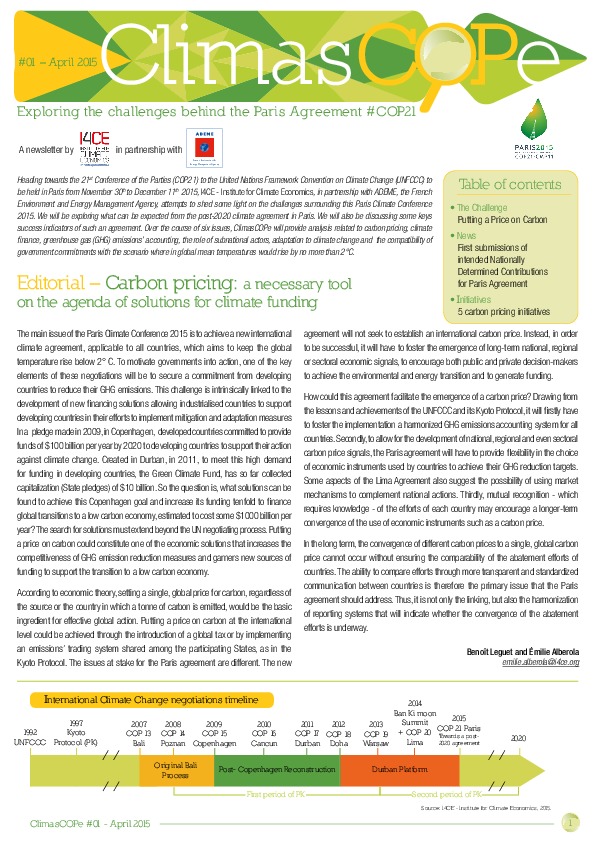Putting a price on carbon
Heading towards the 2015 Paris international Climate Conference (COP21), I4CE, in partnership with ADEME, the French Environment and Energy Management Agency, launches a new publication “ClimasCOPe” aiming to shed some light on the challenges of international climate negotiations. Over the course of six issues published from April to November 2015, ClimasCOPe will provide, in a four-page format, an analysis and synthesis of each challenge, the latest steps of climate negotiations and a focus on key initiatives in this area.
The first issue of ClimasCOPe is focused on the role played by carbon pricing. After an editorial titled « Carbon pricing: a necessary tool on the agenda of solutions for climate funding », I4CE experts analyze economic tools availables to put a price on cabone, last steps in international climate negotiations and key policy and corporate initiatives of carbon pricing developed in the world.

